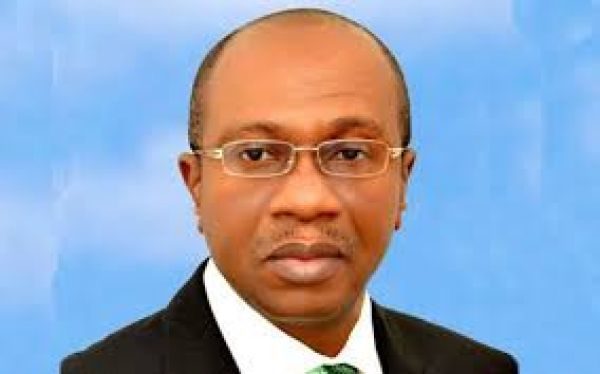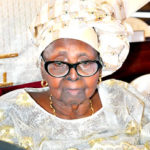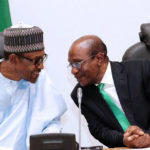SULAIMON OLANREWAJU looks at the decision of the CBN to stop dollar sales to Bureau De Change (BDC) operators vis-à-vis the value of Naira.
At his maiden press briefing on June 5, 2014 as governor of the Central Bank of Nigeria, Mr Godwin Emefiele, while talking about foreign exchange rate policy, promised to preserve the value of naira.
He had said, “Our key goal here would be to maintain exchange rate stability. In view of the high import-dependent nature of the economy and significant exchange rate pass-through, a systematic depreciation of the Naira would literarily translate to considerable inflationary pressure with attendant effect on macroeconomic stability. Therefore, under my leadership, the bank will continue to focus on maintaining exchange rate stability and preserve the value of the domestic currency. We will sustain the managed float regime in the management of the exchange rate, as this will allow the bank to intervene when necessary to offset pressures on the exchange rate. To support this strategy, we will strive to build-up and maintain a healthy external reserves position and ensure external balance.”
However, seven years later, the naira has been badly battered and bruised; its value has cascaded to an all time low. The exchange rate that hovered between N162/$ and N199/$ at the official rate and between N190 and N230 at the parallel market in 2014, is now N412.06/$ at the official market and N550 at the parallel market. Apart from the tottering economy, Mr Emefiele holds bureau de change operators and currency speculators responsible for the sorry state of the Naira.
While addressing the media after the Monetary Policy Committee which held between Thursday and Friday last week, the CBN governor could not hide his frustration with the activities of Bureau De Change operators and their backers, which according to him, have been responsible for the distortions in the nation’s foreign exchange system.
According to him, the CBN is the only national bank in the world that dips its hand in the country’s reserve to sell dollars to Bureau de Change operators in the market.
“Nobody ever mentions the rate of Bureau de Change in the city of London. It really beats my imagination that Nigeria carried on with this kind of practice that tended to support illegal activities of people who are involved in graft and corrupt practices,” he said.
“We have supported the activities of those who illegally buy foreign exchange from this illegal market, carry them in aircraft out of the country and go to buy arms and ammunition and bring them into the country to commit crimes.
“We, the Central Bank, take our country’s dollars and sell to people to buy arms and ammunition to come and hurt us. That is what we are saying that people want us to do, we cannot do that any longer.”
The CBN governor went ahead to accuse Mr Oniwinde Adedotun, director of abokiFX.com, an online foreign exchange information platform, for manipulating the forex market and involving in illegal forex trading.
Emefiele said, “We found him (Oniwinde) as a Nigerian who lives in England, and conducts this nefarious and criminal activity on our economy.
“It is an economic sabotage and we’ll pursue him wherever he is. We will report him to international security agencies.
“We’ll track him, Mr Oniwinde, we’ll find you, because we cannot allow you to continue to conduct an illegal activity that kills our economy.”
Earlier, on July 27, 2021 after an MPC meeting, the CBN governor, while announcing the apex bank’s decision to stop the sale of forex to BDC operators, said that the BDCs had defeated their purpose of existence to provide forex to retail user, adding that instead they had become wholesale and illegal dealers.
He said, “Operators in the BDC have not reciprocated the gesture to help maintain price stability in the market since the CBN had been selling forex to them.
“They have remained renegade and so greedy, recalcitrant with abnormally high profit from these sales while ordinary Nigerians have been left to feel the pain and therefore suffer.
“Given this rent seeking behaviour, it is not surprising that since the CBN began to sell forex to the BDCs, the number of operators has risen from mere 74 in 2005 to over 2,700 in 2016, and almost 5,500 BDCs as at today.
“In addition, the CBN constantly receives nothing less than 500 new applications from BDC licences every month, and we therefore begin to wonder, what is in this business that everybody must be in it?”
So, as it was in January 2016 when the CBN stopped the sale of dollars to BDCs, so was it again in July 2021. However, the immediate effect of the policy was the cascading of the value of naira.
Emefiele’s efforts at strengthening Naira
Emefiele, like most economists, knows that the strength of a currency is determined by the country’s productivity and competitiveness in the international market. For this reason, the CBN, under him, has championed the diversification of the economy. The CBN introduced the Anchor Borrowers Programme in 2015 to empower local farmers and boost local production of rice with a view to stopping the hemorrhage of the nation’s foreign reserves through importation of rice and other items that could be grown locally. The CBN also introduced the creative financing initiatives and solar energy interventions to strengthen the nation’s real sector.
Aside these interventions, over the years, the CBN governor has remained committed to the goal of making the naira strong. This has resulted in the unveiling of a number of policies with a view to coming up with a formula that will effectively shore up the value of the embattled currency.
One of the measures deployed by the CBN to save the Naira was a policy that sought to curb dollar demand by stopping Nigerians from using the interbank forex market to access dollars for 41 items including cement, poultry, tooth pick, private jets, steel nail, wire mesh, rice, Eurobonds and foreign shares.
At a point, the apex bank limited the usage of Naira-denominated credit cards abroad to $300 daily and $50,000 in a year. In addition, commercial banks were asked to submit reports of all Naira-denominated card transactions consummated abroad to NIBSS on daily basis. The report was to include the BVN and the account number of the cardholder for each transaction. CBN also stated that Naira-denominated corporate card should not be allowed for cross-border payments, adding that any corporate entity should obtain foreign currency-denominated cards for cross-border payments.
Later, the CBN mandated BDC operators to ensure that all transactions consummated by them had the Bank Verification Number (BVN) of the customers. The apex bank added that the information must be included in the returns made by the BDCs to it. The CBN also said that in the case of corporate customers, the BVN of a director or an authorized signatory of the entity must be provided.
It warned that failure to comply with the regulation would be penalized. “First offenders will be required to pay a fine of N1 million, while any subsequent violation of the requirement may lead to the revocation of the operating licence of the BDC,” the bank stated.
The CBN also came up with a circular, prohibiting cash lodgment into domiciliary accounts. The apex bank stated that “For foreign currency cash lodgments made prior to the date of this circular, the account holder has the option to either withdraw his or her foreign currency cash or the Naira equivalent. For the avoidance of doubt, only wire transfer to and from domiciliary accounts are henceforth permissible.
“The CBN advises individuals that wish to source foreign currency for eligible and legitimate purposes such as BTA, PTA medical, mortgage, school fees, goods etc to do so through recognized channels with the use of Form ‘A’ for “invisible” and Form ‘M’ for “visible” transactions.
The CBN recently came up with the Naira for Dollar strategy to firm up the currency. The CBN, in a statement released by its Director, Trade and Exchange Department, A.S Jibrin, said it would, through commercial banks, pay to remittance recipients the incentive of N5 for every USD1 remitted by the sender and collected by the designated beneficiary.
It also stated that the incentive would be paid to the recipients whether they choose to collect the USD as cash or as a transfer into their domiciliary account.
The CBN also deployed the strategy of devaluation. In one year, the official rate of the Naira was devalued twice by a total of 24 per cent, while the Nigerian Autonomous Foreign Exchange (NAFEX) rate was also depreciated by 6 per cent.
But in spite of all these efforts, the Naira has not known any respite. This is the major reason the CBN stopped the BDCs, believing that they are used by economic saboteurs to manipulate exchange rate and weaken the national currency.
The oil glut of the 1980s affected Nigeria’s economy. The government had in 1979 projected daily oil production of 2.2 million barrels and a continual increase in oil prices up to 1985. But by the turn of the decade, the world was experiencing oil glut and the country’s oil production plummeted to 700,000 barrels per day and the price of crude oil climbed down from $40 a barrel to $33.50 a barrel. This distorted the government’s projection and affected its capacity to finance imports. Eventually, it affected access to foreign exchange for those who had to pay school fees abroad or needed medical attention overseas. As a way of tackling this problem, the CBN, in 1989, introduced the BDCs in order to expand the foreign exchange market and improve small end-users access to foreign exchange for Business Travel Allowance (BTA), Personal Travel Allowance (PTA), mortgage monthly payments, school fees, medical bills, and credit card payments, among others, subject to a set limit. BDCs were expected to act as dealers in the spot market and buy/sell foreign currency with small margin (premium) as returns. They were also to buy and sell foreign bank notes and Travellers’ Cheque (TCs) from members of the public, banks and the CBN.
According to Mr Yusuf Azeez, an Abuja-based developmental economist, the BDCs were not expected to rely on the CBN for their FX; they were supposed to source foreign currencies from members of the public who had the currencies. He said but by allowing them to have access to foreign currency from the CBN, a lacuna was created for round tripping, buying from the CBN at the official rate and going back to sell at a much higher rate. “This is why the number of BDCs grew astronomically over the years. The lure was too much,” he said.
Speaking in a media report on the essence of BDCs, Dr Biodun Adedipe, the Chief Consultant at B. Adedipe Associates Limited, said the original concept of BDCs did not include the CBN selling foreign currencies to them.
He added, “But because of the way we manage forex programmes and policies in Nigeria, we have over the course of time, bastardised it in the sense that we completely departed from the original concept. We got ourselves to a point where the government, through the CBN, was regularly allocating FX to BDCs in certain amounts, and of course receive the naira equivalent from them.”
Adedipe also noted that the BDCs were supposed to woo customers who had foreign currencies to sell rather than looking up to the CBN for supply. “So, that was the concept originally. Which then means that for any BDC to thrive in such a market, it must be very much in tune with the market dynamics, and therefore also be able to fix its own rate within the recommended commission rate in such a way that is competitive in that market.”
He continued, “It then became a kind of racket where anyone with access to the Central Bank would do everything possible to get a license for the BDCs.
“We now know that once you have a licence, it’s a ticket to a certain allocation on a weekly basis. That means you also have a defined income you can project on a weekly basis without adding any value.”
Azeez said with access to discounted dollars from the CBN, the BDC operators have grown their businesses beyond their original mandate and in some instances became a problem for the economy. “This is why the move by the CBN is important. The CBN has no one to blame for the problem but itself. Maybe the tradition was not started by the current leadership, but the CBN created the problem by allocating forex to BDCs in the first instance. It is good that the CBN, that created the problem, has mustered the political will to solve it. But if we remember that the CBN had travelled this path before only to retrace its steps, the question then is, is this move sustainable? Was it well thought out or was the decision taken on the spur of the moment?”
Way forward for the Naira
Economists have been speaking about what the CBN should do to strengthen the naira.
The Director General of the Nigeria Employers Consultative Association (NECA), Mr. Timothy Olawale, who said the CBN had taken the right step to salvage naira by stopping dollar sales to BDCS, counseled the CBN to float the naira.
He said the CBN should “develop strategies in addressing the exchange market by reviewing the fixed market regime and allow the market to find its balance, as fixed market regime is disincentive to inflow of foreign exchange and Diaspora remittances.
“An exchange management posture that features multiple official rates, distorts the market, denies foreign exchange to critical productive sectors and facilitates illegal arbitrage.”
Mr Bismarck Rewane, CEO of the Financial Derivatives, who also lauded the CBN move, advised the apex bank “to simultaneously allow banks to retail dollars as they did in the past and make BDCs engage in retailing the same but at a buy rate different from today’s subsidized rate, i.e buy dollars from the CBN at the parallel market rate less a N10 premium. For example, if the parallel market rate is N500/$, the purchase rate from the CBN will be N490/$. If the BDCs sell at N550/$, the CBN increases its rate for BDCs to N540/$. That will be the same retail rate at the banks.”
Professor Kingsley Moghalu, a former CBN deputy governor, in a statement issued at the weekend, noted that factors such as low productivity, undiversified economy, supply and demand, inflation and high government indebtedness affected the value of Naira.
According to him the country only has two options with salvaging the Naira.
“One is to let the Naira find its level in the market. In other, words, the CBN should stop subsidizing the currency. While there will likely be an immediate spike in the price of the dollar, this move will have two advantages. The first is that, because Nigeria has a big, profitable economy and market, dollars will likely swamp the market seeking profits for investors.
“When this happens, the laws of demand and supply will work in favor of the Naira. Alongside this, maintaining different exchange rates for different kinds of transactions must end. This is called rate convergence.
“The second, and more important benefit is that, since the current practice of the CBN pumping dollars in the FX market (from the reserves, which also depleted them) is essentially a subsidy for imports, which has made Nigeria more and more import dependent, letting go of the subsidy on the Naira will refocus the economy towards exports.
“This will create an incentive for complex production of a quality that can be competitive in the international market. Accompanying this must be the right trade policies to support and create such incentives for massive exports of finished, value added goods from Nigeria.
“If we don’t want to go this way, perhaps because of the political risk of an immediate further drop in the Naira value (which will recover in the medium to longer term if the right policies are pursued), we can consider dollarization of the Nigerian economy.
“Here the dollar officially becomes a legal tender in Nigeria, either replacing the Naira or alongside it.”
Moghalu added that “But this carries serious consequences too. Nigeria will lose monetary autonomy (our central bank will no longer be able to take independent decisions on interest rates for example). The CBN will lose seigniorage, the revenues it earns from issuing currency from the difference between the face value of the Naira and its production cost. And of course, this will involve a loss of national prestige and independence.”
YOU SHOULD NOT MISS THESE HEADLINES FROM NIGERIAN TRIBUNE
Lagos Is Second Least Liveable City In The World For 2021
Lagos is the second least liveable city in the world for the year 2021. This is according to the most recent annual ranking put together by the Economist Intelligence Unit (EIU)…
CLAIM 1: A Twitter user claims UNICEF said any efforts to block children from accessing pornography might infringe their human rights…
WATCH TOP VIDEOS FROM NIGERIAN TRIBUNE TV
- Let’s Talk About SELF-AWARENESS
- Is Your Confidence Mistaken for Pride? Let’s talk about it
- Is Etiquette About Perfection…Or Just Not Being Rude?
- Top Psychologist Reveal 3 Signs You’re Struggling With Imposter Syndrome
- Do You Pick Up Work-Related Calls at Midnight or Never? Let’s Talk About Boundaries







